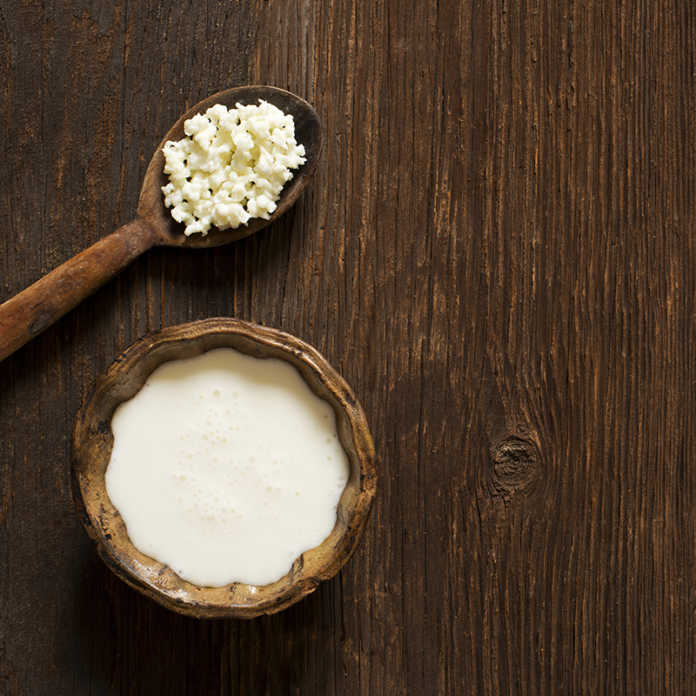
Full of Healthy Bacteria for Gut Health
By Melissa Smith, CNP
Kefir is a thick yogurt-like drink made by fermenting milk with kefir grains. The fermentation creates a plethora of healthy gut-loving bacteria. Although kefir is reminiscent of yogurt, it actually contains a far greater amount of healthy bacteria than yogurt. It helps to support a healthy digestive system as well as a healthy immune system, along with supporting bone health. What’s more, kefir is easily digested and great for kids.
DIGEST THE RIGHT WAY
The bacteria in kefir helps support a healthy digestive system by providing the gut with plenty of beneficial bacteria. This keeps things “moving along” well by preventing digestive issues like constipation and diarrhea.
GUT IT OUT
Did you know that between 70 and 80 percent of our immune system is located in the gut? The gut is also one of the main points of entry for harmful bacteria—such as when we eat food that has gone bad—so it is important to have a healthy defense system to protect us. A diet rich in probiotics, such as that from kefir, will do just that.
BONE-BUILDING
Kefir contains a good amount of nutrients to support healthy bones and prevent Osteoporosis. It contains calcium, vitamin K2, magnesium, phosphorus, and vitamin D. The fermentation process that makes kefir easier to digest allows these nutrients to be better absorbed by the body.
LACTOSE-FRIENDLY
Those individuals with lactose—a type of sugar found in dairy—sensitivities or intolerances are likely to avoid dairy altogether. However, kefir is often far easier digested because of the fermentation, making it easier for these individuals to consume. The fermentation process breaks down the lactose found in dairy, making kefir nearly lactose-free.
GREAT FOR KIDS
Kids typically tend to love the flavoured yogurt drinks that are full of sugar and contain little-to-no healthy bacteria. Make your own by blending plain, unsweetened kefir with fresh or frozen fruit. This will provide them with a healthy dose of probiotics that they normally wouldn’t get, along with all the other benefits of including probiotic foods into their diet.
Kefir can be bought at any grocery store but is relatively easy to make at home. It is made by fermenting milk (cow, goat, or sheep milk) with kefir grains at room temperature for 2-3 days. If you can’t tolerate any dairy at all, dairy-free versions of kefir are made with coconut milk or water.











